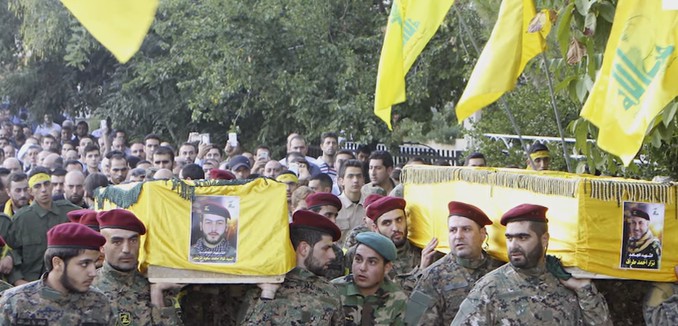Kuwait issued orders to deport 60 Lebanese nationals for their alleged ties to the Iran-backed terrorist group Hezbollah, Agence France-Press reported Monday. The move comes weeks after the Gulf Cooperation Council (GCC) designated Hezbollah as a terrorist organization.
The 60 individuals were considered “dangerous cases” by the Kuwaiti government, and have had their permanent residency revoked, according to a Kuwaiti daily. They were given two days to leave the country.
Kuwait expelled 11 Lebanese and three Iraqi nationals for their alleged ties to Hezbollah last week.
Some 50,000 Lebanese work in the oil-rich Gulf nation and often send remittances home, providing a necessary boost to Lebanon’s economy.
The GCC– composed of Saudi Arabia, Bahrain, Kuwait, Qatar, Oman, and the United Arab Emirates– designated Hezbollah a terrorist group earlier this month, calling its activities “a threat to Arab national security.”
Saudi Arabia announced a halt of $4 billion in aid to Lebanon last month, citing Hezbollah’s control of the Lebanese government.
Experts on the Iran-backed terrorist group stress that it also poses a danger beyond the Gulf states. Tony Badran, a research fellow at the Foundation for Defense of Democracies, testified before Congress last week that Hezbollah’s buildup of its military infrastructure in civilian areas in preparation for its next war against Israel has “painted a big target on the back of all of Lebanon.” Matthew Levitt, director of the counterterrorism and intelligence program at the Washington Institute for Near East Policy, said during the same hearing that “you don’t stockpile the numbers I hear, 130,000 to 150,000 rockets to keep them as paperweights.” Levitt explained that while Israel would not start a war, it also would not allow Hezbollah to threaten the entire country with even more sophisticated rockets than it did in 2006. By Badran’s estimate, Hezbollah has the capacity to fire 1,500 rockets at Israel on daily basis.
In the last couple of years, all ten of the attacks perpetrated against Israel from Syrian soil were directed by Iran’s Islamic Revolutionary Guard Corps and its proxies from territory held by Syrian armed forces, rather than opposition-governed territory, according to Israeli Defense Minister Moshe Ya’alon. Islamic Jihad, a terrorist group financed and armed by Iran, launched rockets into northern Israel from Syria last August. Israel has in the past acted to prevent the IRGC from establishing terror infrastructure along the Golan Heights, killing Jihad Mugniyeh, a Hezbollah commander responsible for operations against Israel from Syria. The State Department sanctioned Samir Kuntar, a terrorist with links to the IRGC, last September for his role “in building up Hizballah’s terrorist infrastructure in the Golan Heights.” He was killed a couple months later in what is believed to be an Israeli strike.
Hezbollah threatened that its next war with Israel would “reach the Galilee” earlier this month.
An Israeli defense official told The New York Times in May that the buildup of Hezbollah’s terror infrastructure in southern Lebanese villages meant that “civilians are living in a military compound,” and that their lives were at risk. A few days later, a newspaper linked to Hezbollah confirmed the Israeli assessment.
[Photo: TestTube News / YouTube ]




